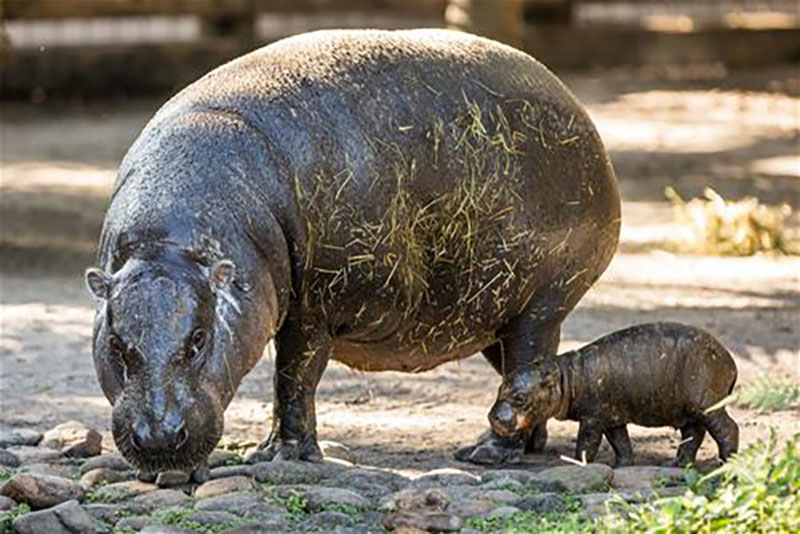Little is known about Pygmy hippopotamus behavior in the wild, and much of what we do know comes from studying those in managed care. They are a solitary species but can occasionally be found in small family groups. They are generally more terrestrial than their larger cousins but still spend plenty of time in the water.
Adaptations such as eyes set further to the sides of their head and a lack of webbing between their toes allow for this difference. Their skin is smooth and thin to help them stay cool in the humid rainforest, but this can also cause the hippos to dehydrate quickly in the sun as they can rapidly lose water. To prevent this, their skin oozes out a pink fluid known as blood sweat. It is made of neither blood nor sweat but is more of a mucous. While true sweat evaporates from the skin to keep the body cool, blood sweat acts as a moisturizer and ointment to protect the skin from dehydration and sunburn. It is also thought to have antibacterial properties.
Pygmy hippos are nocturnal and spend the day resting in swamps, wallows, or rivers to keep cool and leave the water at night to feed on land.
Fun Facts:
- Often referred to as a “dung shower,” male hippos will move their paddle-shaped tail back and forth while defecating to spray fecal matter and mark their territory
Conservation Threats:
Endangered








![tampa-640x300-54[29]-noarrow](jpg/tampa-640x300-5429-noarrow.jpg)


